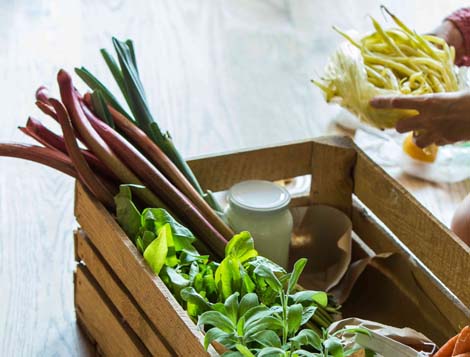 In terms of healthy food, let us also consider chemicals added to food. E.g. the cakes are kept fresh for a long time by adding specific emulsifiers, or antioxidants. These substances are found in many foods as natural ingredients. So the question is, what substances and what their level and when should be considered harmful, i.e.. at what level of harmful substances the food cannot be considered healthy.
In terms of healthy food, let us also consider chemicals added to food. E.g. the cakes are kept fresh for a long time by adding specific emulsifiers, or antioxidants. These substances are found in many foods as natural ingredients. So the question is, what substances and what their level and when should be considered harmful, i.e.. at what level of harmful substances the food cannot be considered healthy.
Special varieties of lettuce were given as an example, whose chemical composition was extremely different, depending on the cultivation technique and soil preparation used.
Is the fact that the oxalic acid contained in approx 2 kg of rhubarb (even that from biodynamic farming) is a lethal dose for the human system should be considered the basis for qualifying rhubarb as “unhealthy” food? Is the recommendation to consume no more of this plant than 25 g per day (0,01 the highest inactive dose) qualifies rhubarb as a healthy food?
If we eat, for example. traditional portion of approx 200 g kapusty (and a dose of approx. 10 kg could cause goiter development) whether this dose causes damage of small size, whether it does not leave microtraumas, or should you count on our body's detoxification capacity.
The examples mentioned are intended to demonstrate, how hard it is to say, which food is healthy.
It is also worth highlighting, that from the point of view of permitted content, e.g.. poisons in food, Factory-processed products undergo much stricter checks than products in their natural state.
Tribes, that eat only products derived from nature do not live any longer, and we have been taking regular doses of cyanide with food for thousands of years, solanine and goiter - no apparent harm. Today, however, we do not know, would we live longer and better, if we stopped eating these foods. We only know, that a sharp distinction between healthy and unhealthy foods would lead to the state, in which we would have very little to eat.
In conclusion, it must be said, that knowing nothing about the presence of toxins in a lot of fresh, unprocessed foods, many people feel - elevated by some to the status of proven facts - that “natural” foods are good for us, and vice versa, all that can be called synthetic, artificial or replacement, are harmful.
Meanwhile, it is difficult to decide, whether any food can be considered "natural" to man, and thus count as a healthy food without reservations.
Only despite the abundance of special mixtures for children, food such as breast milk, still withstands all tests, when we test it for the perfect baby food.
